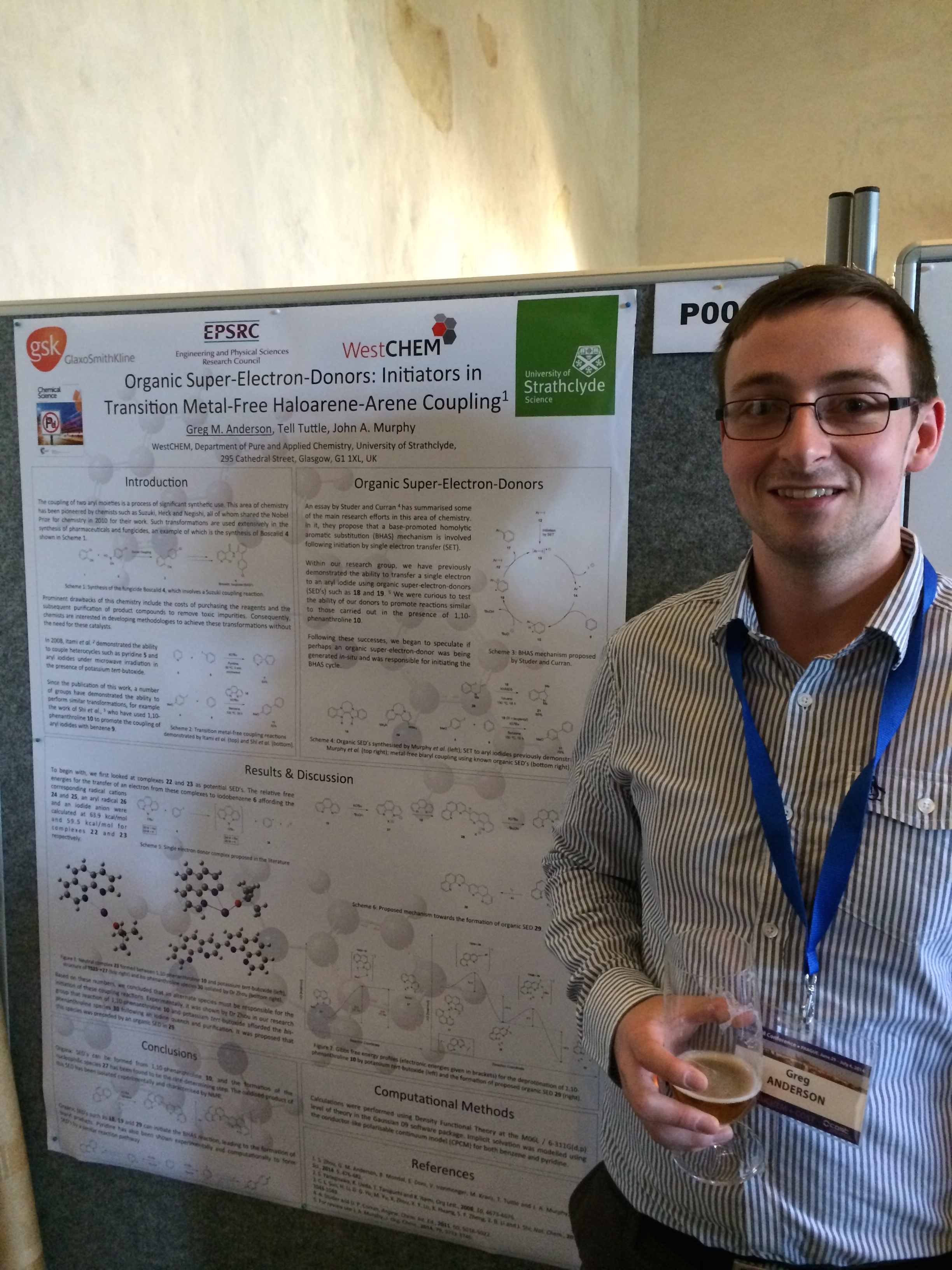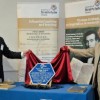Research in the TuttleLab is focused on the concept of reducing molecular search spaces. The reduction of molecular search spaces involves the use of computational methodology to inform, focus and drive the direction of molecular research. The group works in close collaboration with experimental colleagues to ensure the results from our design work are able to be directly implemented in a practical laboratory. The process of reducing molecular search spaces involves three phases: (1) rationalising and understanding existing systems; (2) isolating the governing molecular processes; and (3) predicting new systems with enhanced/desirable properties and reactivities. A variety of different methods are used in pursuit of this goal, including ab initio, DFT, semi-empirical, MM, coarse grain and hybrid QM/MM methodologies.
News From the Lab

Marc Reid wins the 2014 Messel Travel Bursary
I would like to offer my sincere thanks to SCI for granting me the financial support to attend the ICOMC 2014 in Sapporo, Japan. As a final year PhD student working in the field of organometallic chemistry, this conference proved as enjoyable as it was enlightening. The ICOMC is held every two years and has […]

The Batsheva de Rothschild Seminar on Functional Peptide and Protein Nanostructures – Israel
Dan travelled to Israel for the Batsheva de Rothschild Seminar on Functional Peptide and Protein Nanostructures. His talk, titled: “Revealing the Conformational and Binding Properties of GBP1 with the Au {111} Surface” was well received by the audience, which included many prominent chemists in the field of biomolecular materials.

EUCHEM Conference on Organic Free Radicals – Prague
Our student Greg recently attended the EUCHEM Conference on Organic Free Radicals hosted in Prague this year along with other members of Professor Murphy’s group. Here, he had the opportunity to present a poster documenting his research to a number of leading chemists in his field.

Roald Hoffmann visit Strathclyde
Professor Hoffmann, joint Nobel Laureate in Chemistry 1981 and Frank H. T. Rhodes Professor of Humane Letters Emeritus, Cornell University, was made a Doctor of Science of the University of Strathclyde on Wednesday 2 July. Following the award of the honorary degree, Roald Hoffmann honoured the renowned Scottish chemist Thomas Graham, at a lecture and ceremony in […]








